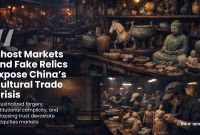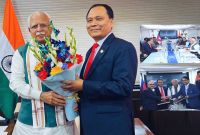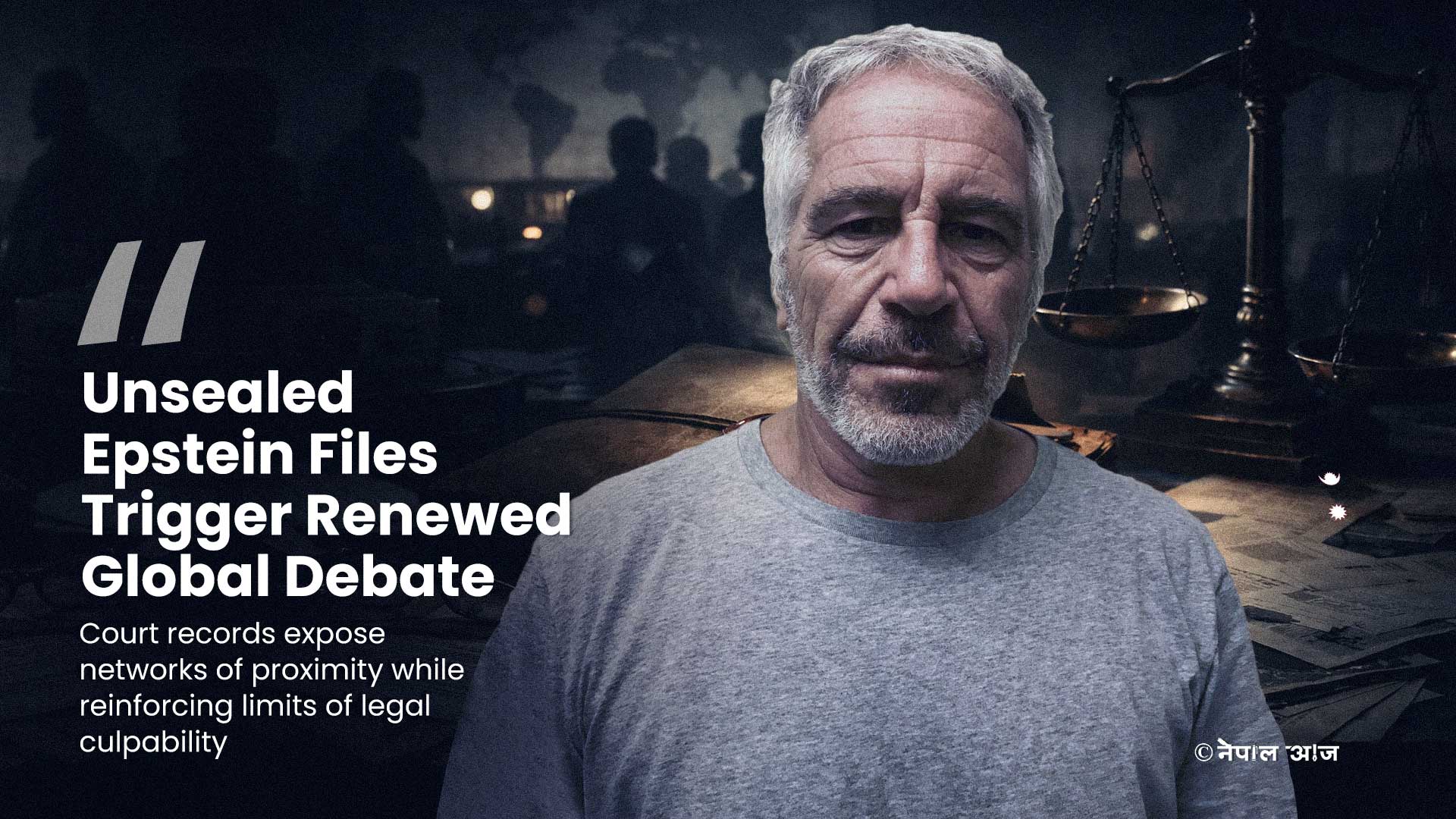Behind the lens: How China forces foreign media to depend on CCP-controlled staff

While the work of correspondents often attracts attention, it is the local staff behind them—known as news assistants or fixers—who bear the brunt of the Chinese Communist Party’s (CCP) oversight.
These indispensable employees, who translate, arrange interviews, and manage logistics, occupy a precarious position: they are crucial for reporting yet remain firmly under state control.
Unlike in most countries, where local hires are directly employed by media outlets, in China, every news assistant must be hired through CCP-approved labour agencies overseen by the Ministry of Foreign Affairs.
These agencies manage wages, social benefits, and contracts, legally binding assistants to the state even as they carry out the day-to-day directives of foreign journalists.
This arrangement creates a “three-way relationship” among foreign media organisations, Chinese assistants, and the state.
Assistants are tasked with helping reporters navigate Beijing’s and Shanghai’s bureaucratic and logistical maze while simultaneously remaining accountable to agencies that report to the CCP.
The reliance on news assistants is absolute. Foreign correspondents cannot operate without their local counterparts. Assistants make calls, secure interviews, translate on the spot, and handle mundane but essential paperwork.
They are the lifeline of reporting in China, where even seemingly simple tasks—booking transportation, confirming appointments, or obtaining documents—require intricate navigation through both bureaucratic and political channels.
Yet, every movement they make is scrutinised. The CCP’s antipathy toward press freedom means that even the most routine work carries the weight of potential political consequences.
This vulnerability is not hypothetical. High-profile cases illustrate the dangers news assistants face.
In 2014, Zhang Miao, an assistant for the German weekly Die Zeit, was detained for nine months after covering pro-democracy protests in Hong Kong.
A decade earlier, Zhao Yan, who had worked with The New York Times, was sentenced to three years in prison on fraud charges after being accused—initially—of leaking state secrets.
These examples underscore a chilling reality: while foreign correspondents may enjoy some degree of diplomatic protection, local staffers have none. They lack press credentials recognised internationally and are treated primarily as Chinese citizens, fully subject to domestic laws that can be applied arbitrarily.
The system is designed to serve the CCP’s objectives. By routing all employment through state-controlled agencies, the Party ensures that every assistant is accountable to the government.
The agencies are legally obligated to report on the work and movements of their employees, providing the CCP with insight into what foreign media are reporting and how they operate.
This bureaucratic oversight supplements direct surveillance measures, giving the state indirect control over foreign journalism in ways that are both subtle and insidious.
The Foreign Correspondents’ Club of China (FCCC) has documented a pattern of harassment targeting both foreign journalists and local staff.
During the COVID-19 pandemic, reports indicated intensified scrutiny: assistants were detained, interrogated, or questioned about their work for foreign outlets.
The combination of diplomatic restrictions on foreign reporters and domestic vulnerability of assistants has created an environment where news gathering is fraught with risk.
Any story touching sensitive topics—from pro-democracy movements in Hong Kong to internal CCP affairs—can trigger consequences that extend beyond the journalist to the assistant facilitating the work.
This model of control has evolved over decades.
In the 1990s, foreign media could sometimes hire local staff directly, bypassing state agencies. By 2008, however, new regulations mandated that all assistants must be employed through official channels, formalising the state’s grip.
Over time, the rules governing their work have tightened further, reflecting Beijing’s increasing concern with controlling information, especially in the digital age. What was once an administrative convenience has become a tool of political oversight.
The CCP’s approach contrasts sharply with its treatment of foreign media itself.
Unlike domestic outlets, which are directly under Party control and tasked with propagating state narratives, foreign organisations are nominally independent.
This independence, however, exists only within tightly enforced boundaries.
Foreign journalists can report critically, but only with the tacit cooperation of Chinese assistants who are under CCP supervision.
The Party leverages this dependency to limit coverage that might be unflattering or politically sensitive, creating a system where the story itself is filtered not through the journalist’s discretion but through the compliance and caution of state-monitored staff.
The human cost of this arrangement is significant. Assistants must navigate dual loyalties: to their employer, the foreign media outlet, and to the state agency that controls their employment.
Any misstep—perceived insubordination, unauthorised interviews, or even a careless comment—can result in detention or investigation. Yet their labour remains indispensable.
Without assistants, foreign journalists could not function, highlighting the paradox at the heart of China’s media landscape: those most critical to independent reporting are also the most vulnerable to state reprisal.
Reports by press freedom organisations have emphasised that this system is deliberately structured to extend the CCP’s reach into foreign media operations.
By controlling who can be employed, how they are compensated, and where they can go, the Party exercises a quiet but effective form of censorship.
Unlike overt bans or shutdowns, which would draw international condemnation, the use of intermediaries allows the CCP to maintain a veneer of openness while ensuring that all reporting occurs under its watchful eye.
The effects on journalism are profound. Foreign media outlets must constantly calibrate their reporting with an awareness of the risks faced by assistants.
Sensitive stories—from labour strikes to political dissent—may be delayed, watered down, or avoided entirely to prevent repercussions for staff.
Even routine reporting requires navigating a labyrinth of regulations and cautious negotiation, with every interview or public appearance carrying potential political implications.
The net result is a chilling effect on independent journalism, enforced not by overt prohibition but through the vulnerabilities of those who make reporting possible.
In a country where the press is otherwise tightly controlled, this system underscores the CCP’s strategy: maintain the appearance of a global media presence while ensuring that any interaction with the foreign press is mediated by agents of the state.
The assistants, though essential, operate under constant pressure and scrutiny. Their work ensures that foreign journalists can report, but at a hidden cost that few outside China fully comprehend.
Ultimately, the structure of foreign media employment in China exemplifies how the CCP extends control over information.
By requiring that all assistants be hired through state-sanctioned agencies, the Party ensures that foreign reporting remains contingent on compliance with official oversight.
This creates a media environment where independence is fragile and the individuals who enable it—news assistants—carry the greatest risk, subject to laws, investigations, and detentions that can dramatically alter their lives.
In China, the human infrastructure behind journalism is inseparable from the political apparatus that governs it, leaving foreign reporting in a state of constant negotiation with authority.




![From Kathmandu to the World: How Excel Students Are Winning Big [Admission Open]](https://nepalaaja.com/img/70194/medium/excel-college-info-eng-nep-2342.jpg)


